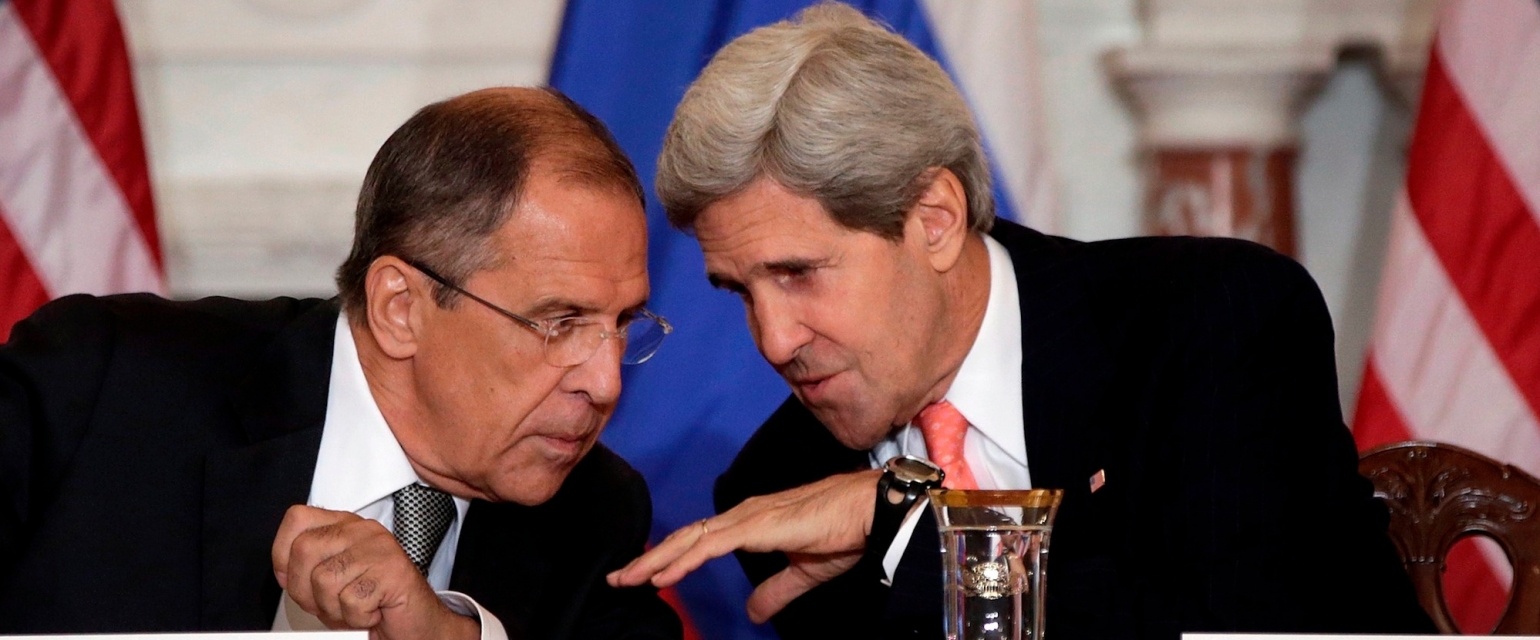

The text was originally published at Russia Direct
The Russian political class has been watching the United States reluctantly rolling towards a military intervention in Syria over the last few weeks with some perplexity. A series of reckless actions was anticipated, namely: (1) a short-timed military intervention into (2) an inter-ethnic and inter-confessional civil war (3) on the side of an amorphous coalition of extremist forces (4) in response to a dubious incident that seems to have been staged (5) with a view to discouraging those who allegedly used chemical weapons (6) and those who allegedly suffered from them from ever using them again.
Any two of these six conditions render the intervention meaningless, let alone all the six of them.
This obvious political stalemate, largely a result of misinterpreted interests, is relatively difficult to understand for the Russian political class. History has taught Russians pragmatism, especially the need to be fully aware of a nation’s own interests.
Politics is seen in Russia as a very complicated equation, rather than a simple one: there are lots of variables, many of them unknown, and the correlations between them are quite complex. This is one reason why the way the Russians think is often referred to in the West as ‘Byzantine.’
Russian common sense in the diplomatic realm is underpinned by the national experience. Russia is a country with a rich history of international conflicts. It has the longest land frontier in the world and the largest number of neighboring states. Russia and Turkey hold the dubious record for the number of wars between two countries. Since the 15th century, Russia has been a multi-ethnic country with an excellent track record of the peaceful coexistence of numerous ethnic groups. However, internal peace and security remain the key prerequisites for the very existence of the state.
Life in a multi-ethnic country calls for the development of particular intercultural competencies, specifically empathy – an ability to adopt another people’s point of view. This makes it easier for the Russian political elite to understand complex international situations, including those unfolding far away from Russia’s frontiers. At any rate, this collective national experience enables Russians to comprehend the conflict in Syria in another way and see the unknown variables.
Moscow is concerned that Washington's decision to cancel the military intervention was situational, made rather under pressure from the Russian initiative. The American public refers to president Obama as ‘Hamlet’, a hesitant state leader reflecting on choices and straddling between two camps.
However, it is typical of Russian incumbents to exercise a cautious and sensible approach to crises, yet they are often perceived as aggressive leaders. The West interprets the Russian initiative proposing a path to end the Syrian crisis as Moscow’s diplomatic victory, while Russia perceives it as the United States getting back to common sense in international relations.
The only factor, probably, that pushed the United States back to common sense might be Washington’s awareness that a military intervention would be senseless and bring about even more unpredictability. Perhaps, the U.S. took into account its own experience of military conflicts over the past twenty years. This progressive trend naturally brings the United States closer to Russia. In the future, it should help the U.S. administration take more reasonable decisions on its engagement in international conflicts.
While Russian military operations in Syria received all the headlines, there were other important foreign policy developments in both Ukraine and Turkey. This past week, Russian diplomacy was occupied with three main areas – the nation’s military operations against the Islamic State of Iraq and the Greater Syria (ISIS), developments in Ukraine, and increasingly contentious relations with Turkey.
The “Minsk process” has created a chance for Donbass to become a new proving ground for unrecognized statehood. Different options, ranging from Chechnya and Serbian Krajina to the Transnistrian experience, may be possible. Or the region may build a unique Donbass model.
For a major power like Russia, with the pretentions to be a global player, a question about state building in a small republic with limited international recognition is an obscure subject, just one element in the bigger political picture. However, a political crisis that unfolded in Abkhazia this year has given the discussions a new urgency.
My observations in Washington prove that this is not an immediate objective for the US yet. However, it does not mean, that the Americans will refrain from an opportunity to speed up the fall of the Russian regime if the internal problems cause a social upheaval. Having met with the White House, National Security Council and Pentagon officials, as well as experts on Russia in Washington, I may conclude that the US has certain difficulties formulating a single consistent policy towards Moscow and is, therefore, incapable of conspiring against it.